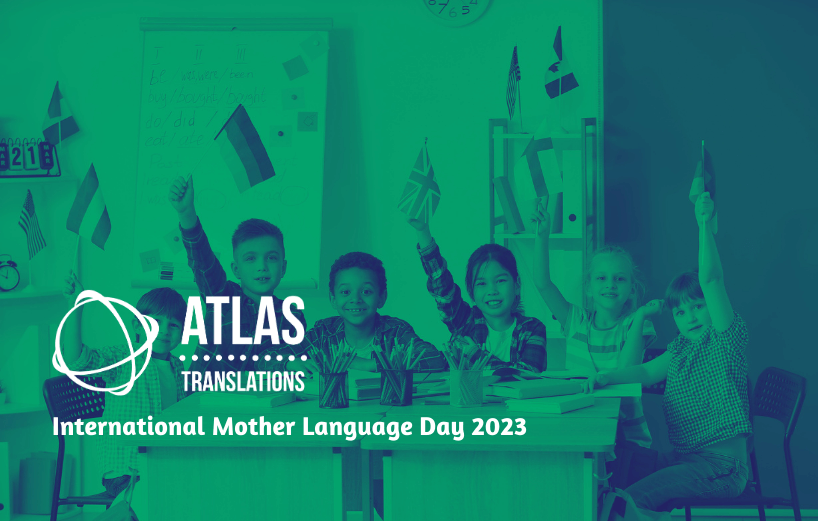International Mother Language Day 2023

As a translation agency, we realise that language forms an important part of any community’s culture and identity. With many languages becoming endangered and even disappearing every year due to globalisation, a plethora of knowledge, traditions and heritage is lost. Did you know that on the 21st of February people around the world observe Mother Language Day? In this post, we will look into some facts about International Mother Language Day and why it’s important.
What is International Mother Language Day
The main idea behind International Mother Language Day is to promote multilingualism and linguistic and cultural diversity to help develop inclusive societies. This is the day to cherish linguistic diversity around the world and recognise the value of languages.
International Mother Language Day has been celebrated annually on the 21st of February since 2000. Its theme in 2023 is ‘Multilingual education – a necessity to transform education’.
According to UNESCO, of the estimated 6000 languages in the world, only a few hundred are featured in education systems and less than a hundred are used in the digital world. Furthermore, UNESCO draws attention to the fact that many people around the world (around 40% of the population) do not have access to education and learning opportunities in their native tongue. To change that and present people with the possibility to learn in their own language, there should be more focus on providing multilingual education, not only in the dominant but in indigenous and minority languages too.
Multilingual education typically encourages the predominant use of the child’s native tongue in early education and then transitioning to other languages later on. That kind of approach is believed to improve learning outcomes.
Why is International Mother Language Day celebrated?
The idea to celebrate International Mother Language Day was brought forward by Bangladesh and approved at the 1999 UNESCO General Conference. To fully understand why it was initiated, we have to go back in time to the mid-20th century.
Pakistan was formed of two parts in the late 1940s – East Pakistan (today known as Bangladesh) and West Pakistan (today known as Pakistan). These two parts were culturally different from each other, in addition to being geographically separated by India in between.
Although Bengali or Bangla was the main language spoken by people, especially in East Pakistan, in 1948 the Government of Pakistan declared just one national language of Pakistan – Urdu. Understandably, since the majority of people in East Pakistan spoke Bengali as their mother tongue, this declaration led to big protests.
The Bengali language movement wanted Bengali to be recognised as one of the official languages along with Urdu. The Government of Pakistan did not tolerate the protests, outlawing public meetings but the protests continued. Students of the University of Dhaka with public support arranged big rallies and their protest on the 21st of February 1952 culminated with police killing and injuring many protestants.
Today, the 21st of February is a national holiday in Bangladesh and International Mother Language Day is celebrated to remember these tragic events and the victims.
The importance of International Mother Language Day
In the globalised and increasingly connected world where a few languages dominate the public and digital space, it is easy to forget about the value of languages. Days like International Mother Language Day put focus on this important element of cultural and national identity, and present a great occasion to discuss ways in which linguistic diversity can be nurtured.
Support linguistic diversity and multilingual education
At Atlas Translations, it is our mission to aid communication and bring content and information to people around the world. If you’re looking to translate your content, e-learning platform or educational course into other languages, don’t hesitate to contact us.















